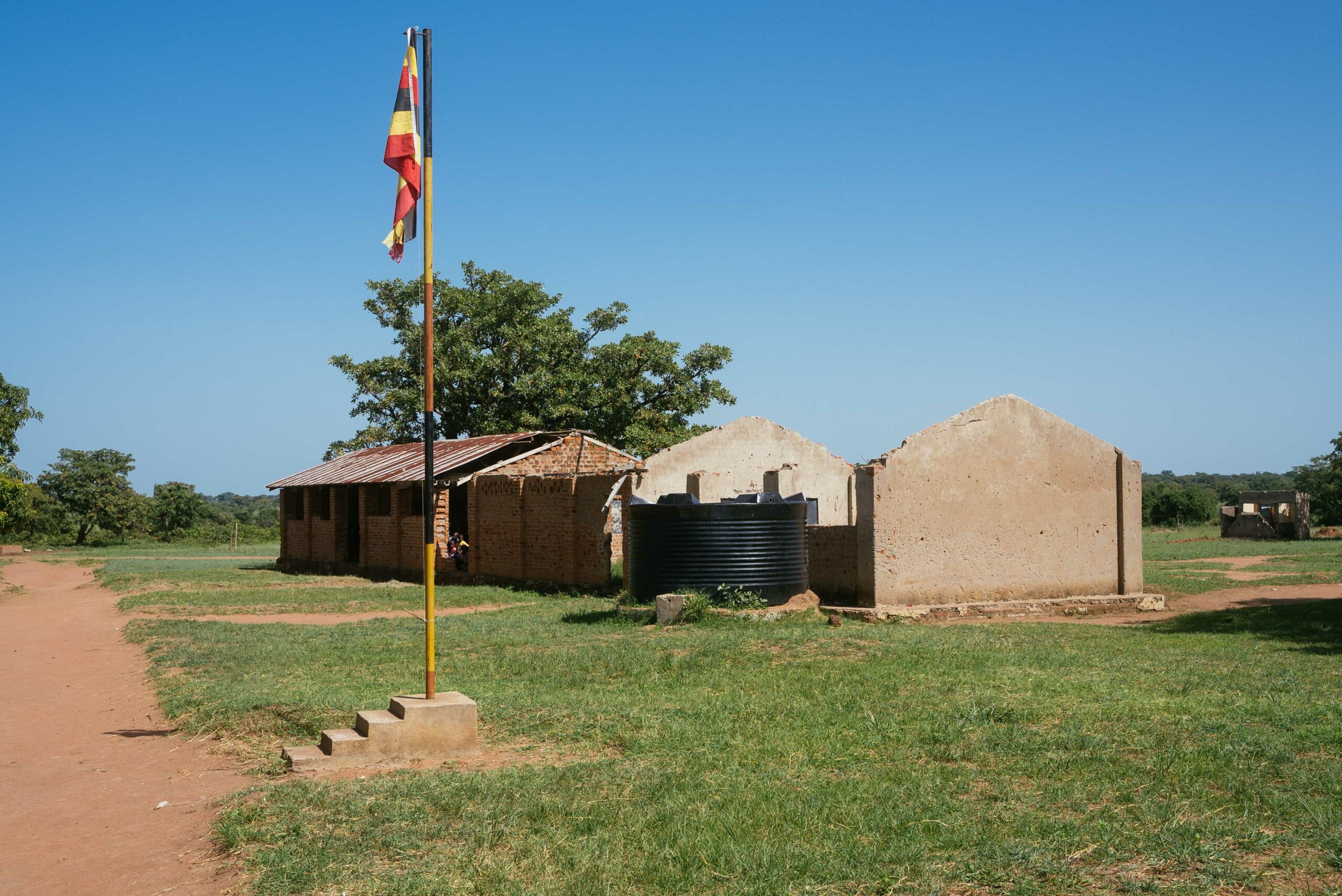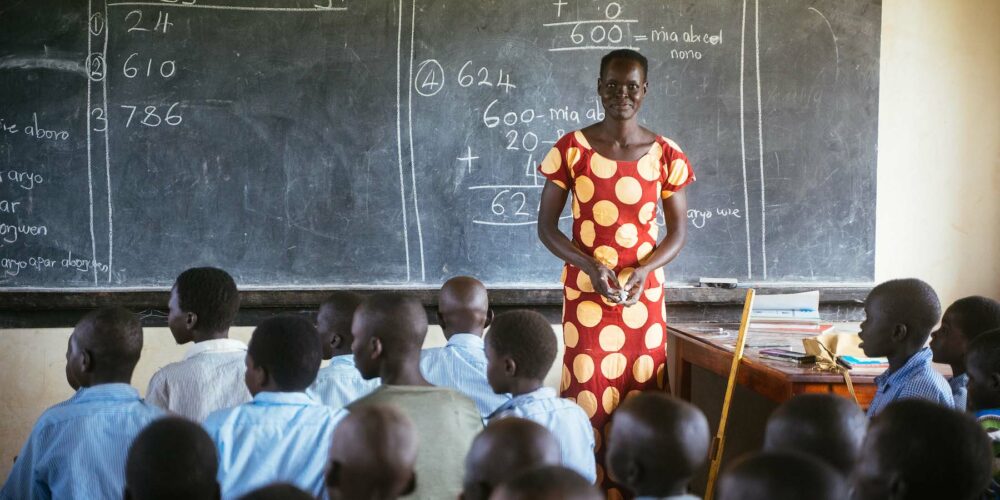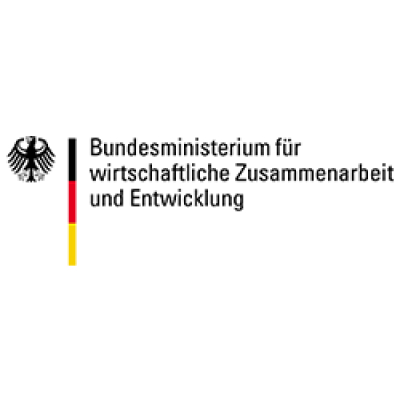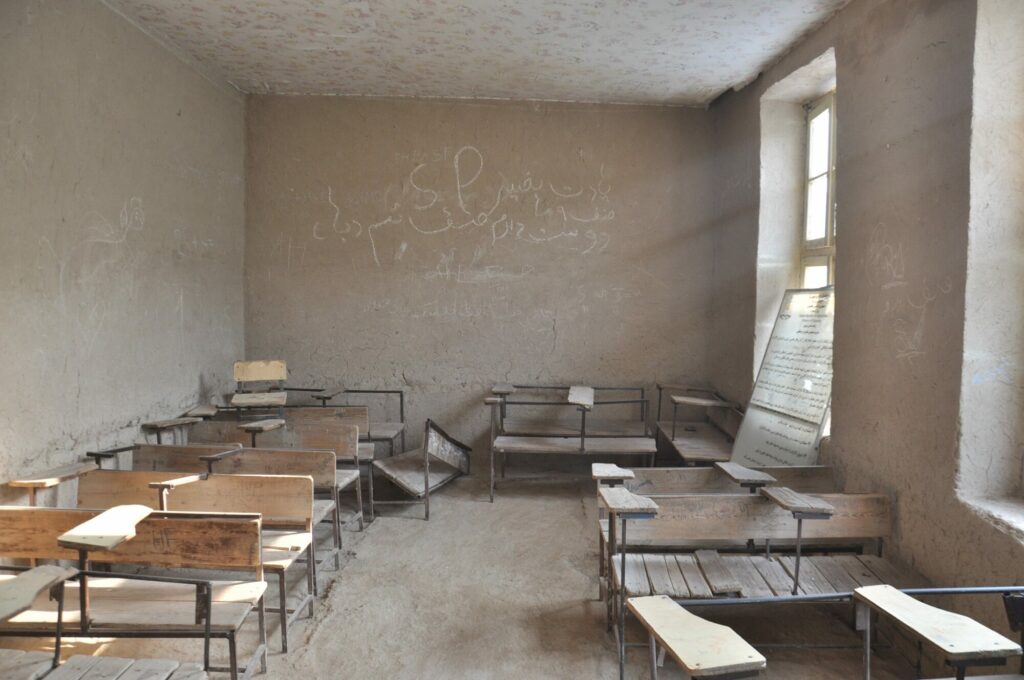
Qala-e-Jangi Girls’ School
The donation target for this project has been reached, but we would be delighted if you could continue to support our ongoing projects in Afghanistan.
There are currently 1,776 pupils registered at the Qala-e-Jangi girls’ school in Mazar-e-Sharif, but they are currently being taught in three shifts due to a severe lack of space. Due to the dilapidated buildings, some lessons even have to take place outdoors. The noise level and the sometimes extreme temperatures severely limit the ability to absorb. The dilapidated sanitary facilities also make everyday school life difficult and pose health risks. Therefore, in addition to the construction of a building with six new classrooms and the equipping of the library and science laboratory, the project also includes the provision of hygienic sanitary facilities. The construction measures are accompanied by workshops and training for teachers, pupils and the school development council to ensure the sustainability of the measures, improve the quality of teaching and raise awareness of issues such as hygiene and health.
INITIAL SITUATION
The Qala-e-Jangi girls’ school is located in Mazar-e-Sharif, the capital of the northern Afghan province of Balkh, around 300 kilometers northwest of Kabul. A total of 1,776 pupils aged 6-16 are registered at the school. As the nearest elementary school for boys is far away, the girls’ school also teaches 255 pupils from Year 1 to Year 4.
LACK OF LEARNING SUCCESS DUE TO INADEQUATE EQUIPMENT
The school currently consists of 19 rooms in three dilapidated buildings. Three of the 15 classrooms are so run-down that they can no longer be used. Space is so limited that 42 classes have to be taught in three shifts and sometimes in tents or outdoors. This significantly impairs the pupils’ ability to concentrate and absorb information – despite attending school, they lack basic knowledge.
Although the school has a library including a laboratory, science subjects cannot be taught properly due to a lack of equipment and chemical substances. There are only 400 books in the entire library, which means that the – mostly economically disadvantaged – families have to buy the books they need for their lessons themselves.
Due to limited access to free further training, some teachers also lack the specialist knowledge and teaching methods to create interesting and high-quality lessons.
LACK OF HYGIENIC STANDARDS
The sanitary facilities at the Qala-e-Jangi girls’ school are in a desolate state. The existing six toilet cubicles and one hand-washing facility date back to 1986 and are so dilapidated that they can no longer be renovated. Knowledge of hygiene measures and important rules of conduct to protect against diseases is also limited.
A solar system with a water pump is currently out of operation due to a lack of tools and spare parts and limited knowledge of repair and maintenance.
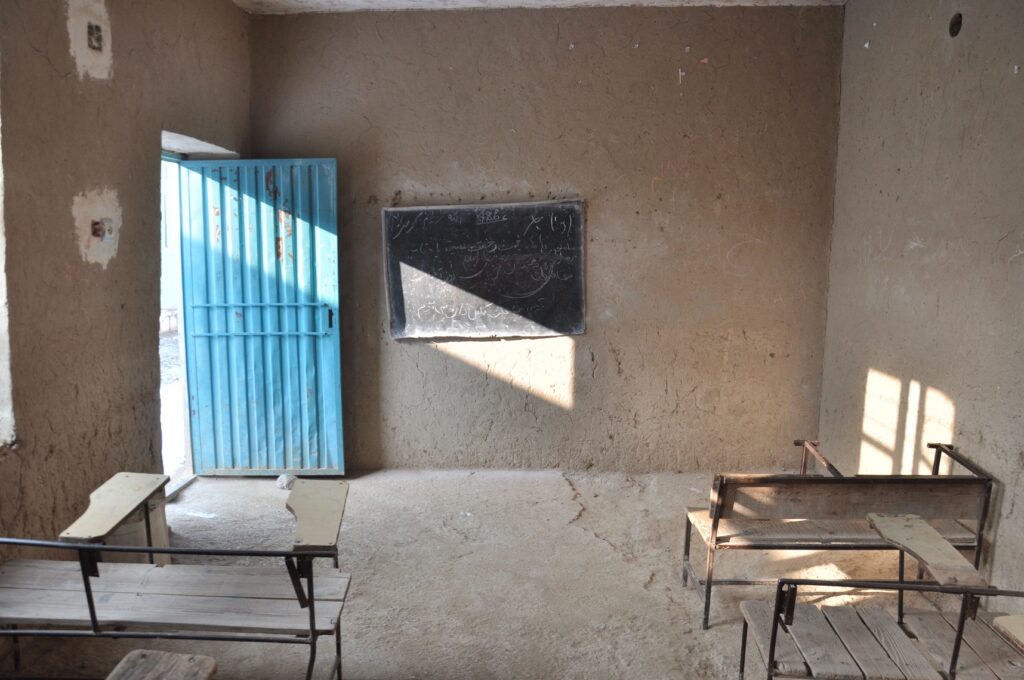
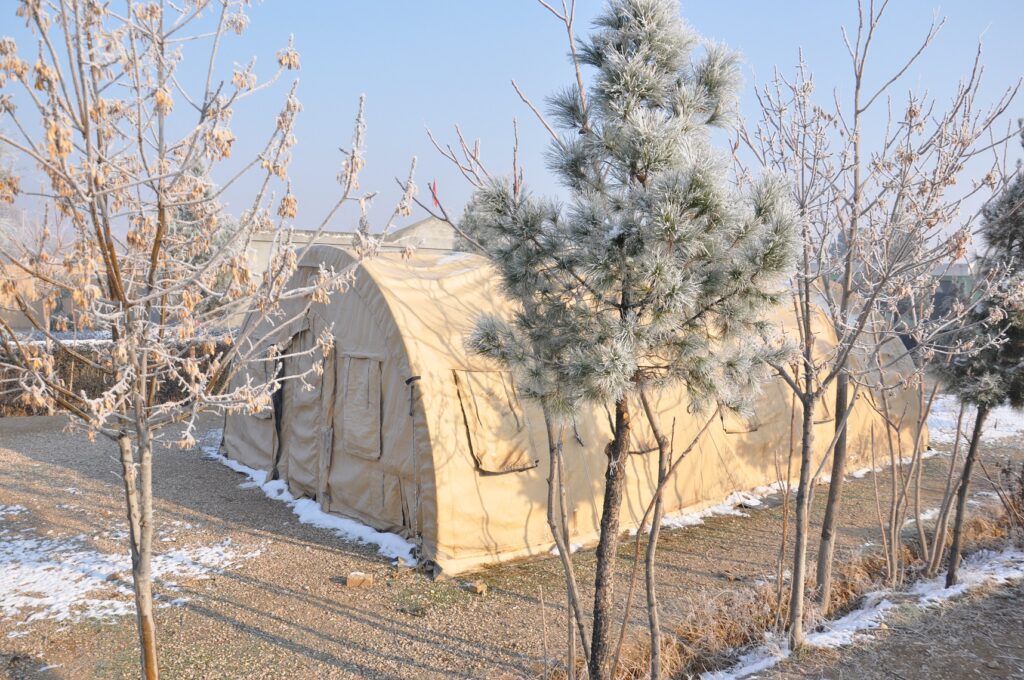
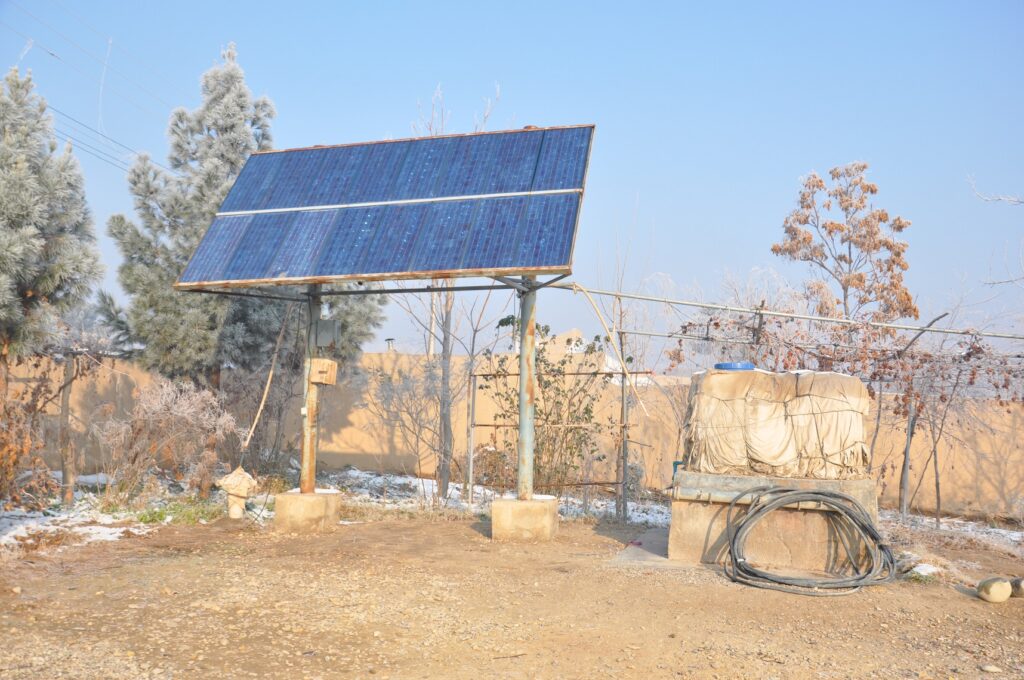
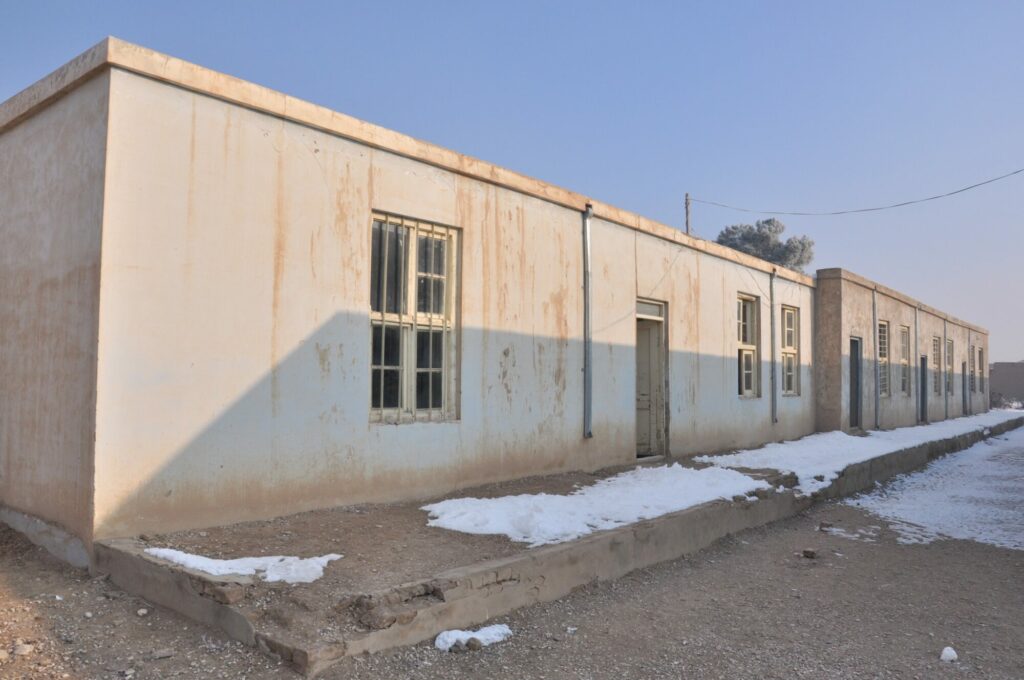
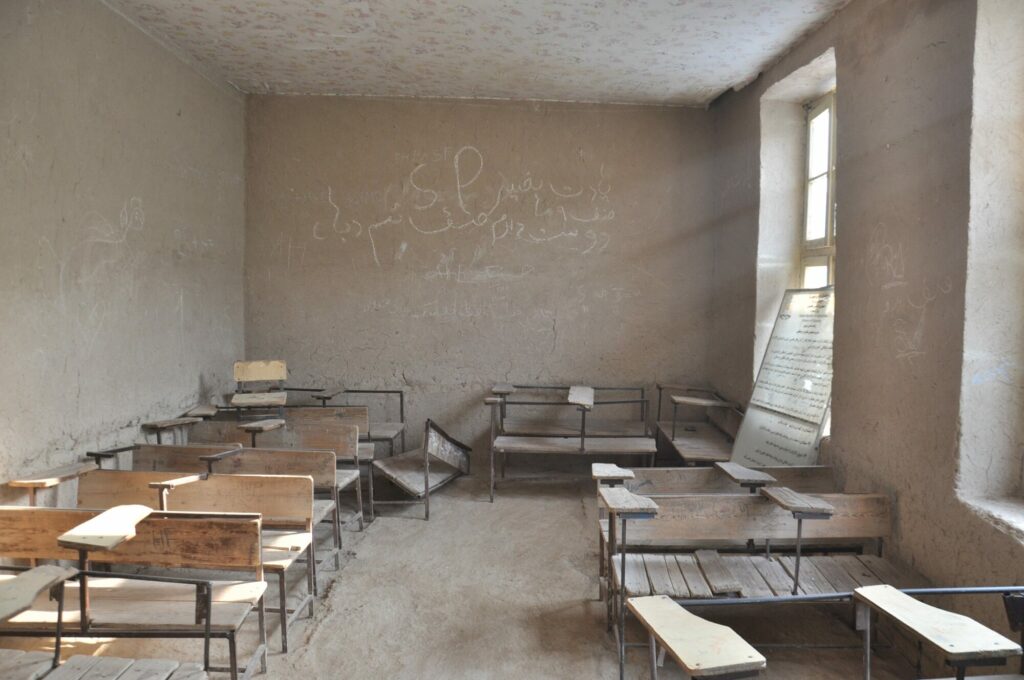
SOLUTIONS
The project focuses on four central points: improving learning and teaching conditions, improving hygiene standards and promoting sustainable school structures.
To improve learning and teaching conditions, a new, barrier-free school building with six classrooms is being built and furnished. The library is equipped with new furniture as well as novels and textbooks. A workshop on a library system complements this new equipment. In addition to new laboratory equipment, new laboratory materials and textbooks will be purchased. Science workshops are also offered to give teachers the opportunity to expand their knowledge.
The improvement in hygiene standards is achieved through the provision of hygienic sanitary facilities and the accompanying transfer of knowledge. The sanitary facilities include eight individual cabins including two barrier-free toilets, a washroom for girls and a solar-powered hand-washing facility with a water tank. In several workshops, the pupils learn how to use water and sanitary facilities and the importance of hygiene.
In order to promote sustainable school structures, the existing mixed-gender school development council will be strengthened. The 16 members’ knowledge of responsibilities, powers and internal structures is expanded in a training course. There will also be a workshop on the maintenance of new infrastructure and environmental awareness.
THE LOCAL PARTNER - OASIS
The local project organization is OASE (Organization of Afghan Support for Education), with which we have already successfully implemented countless projects in Afghanistan. The employees are very well connected in Mazar-e-Sharif and have valuable expertise on the local educational context. This expertise facilitates cooperation with local authorities and schools in light of current political events. OASE’s commitment in the difficult security situation is outstanding and enables the continuation of educational projects, also with regard to new challenges associated with political changes.
WHAT HAS BEEN ACHIEVED SO FAR
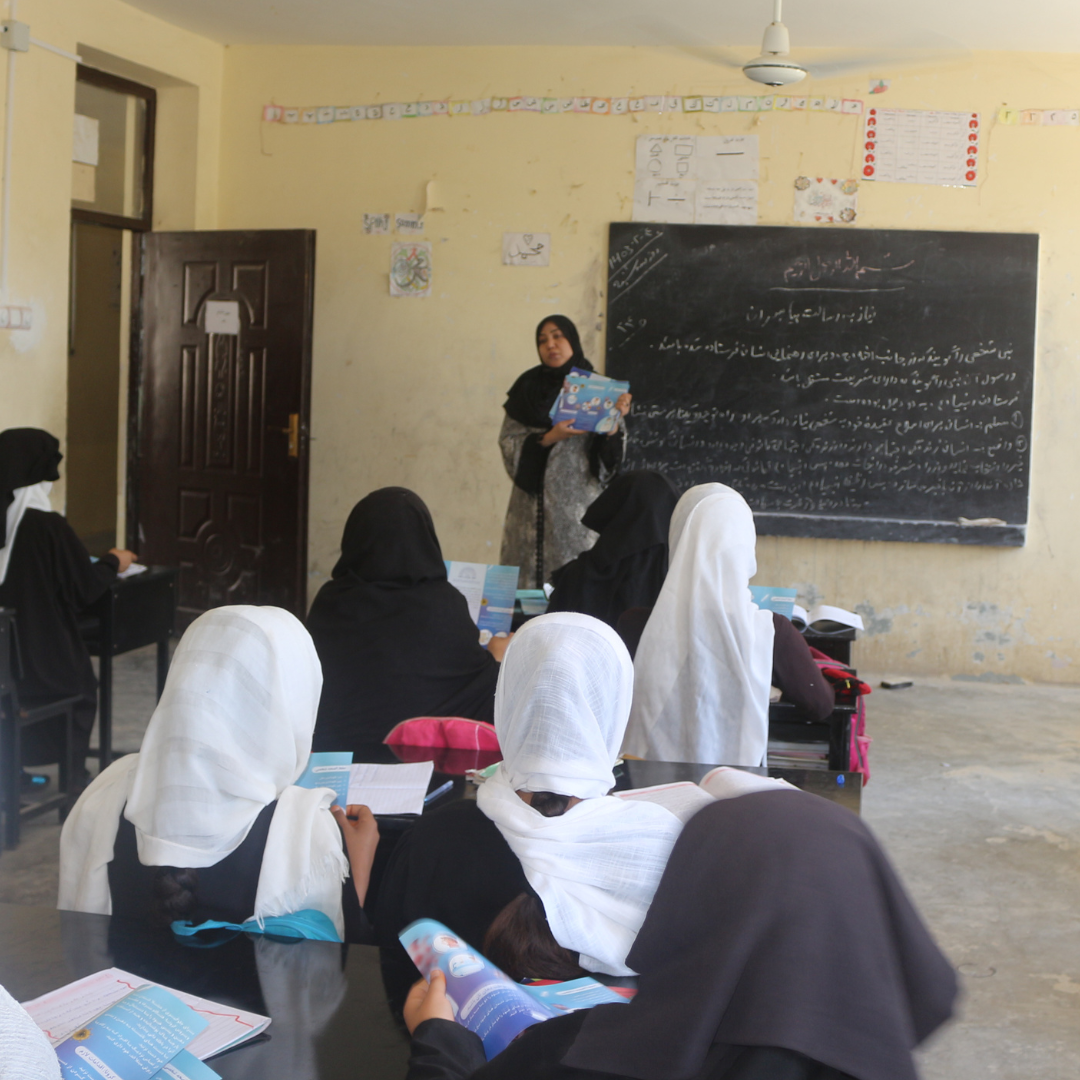

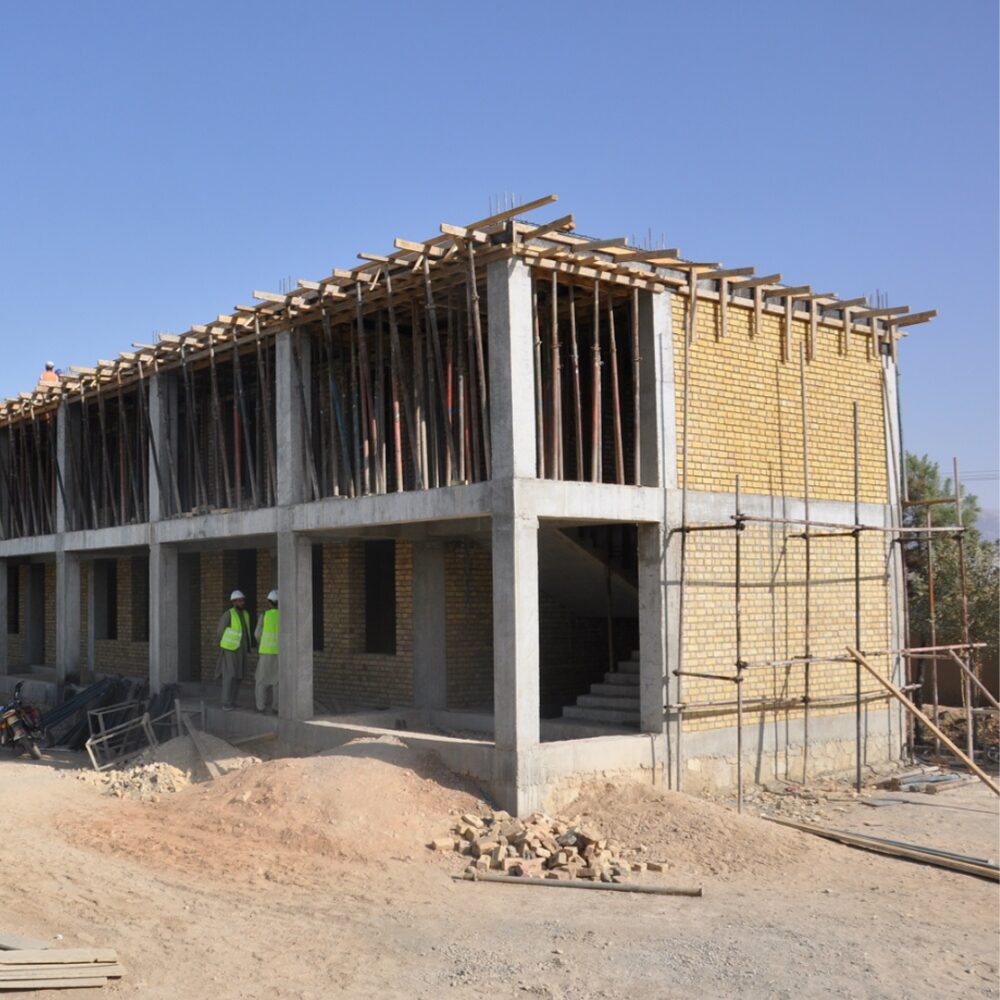
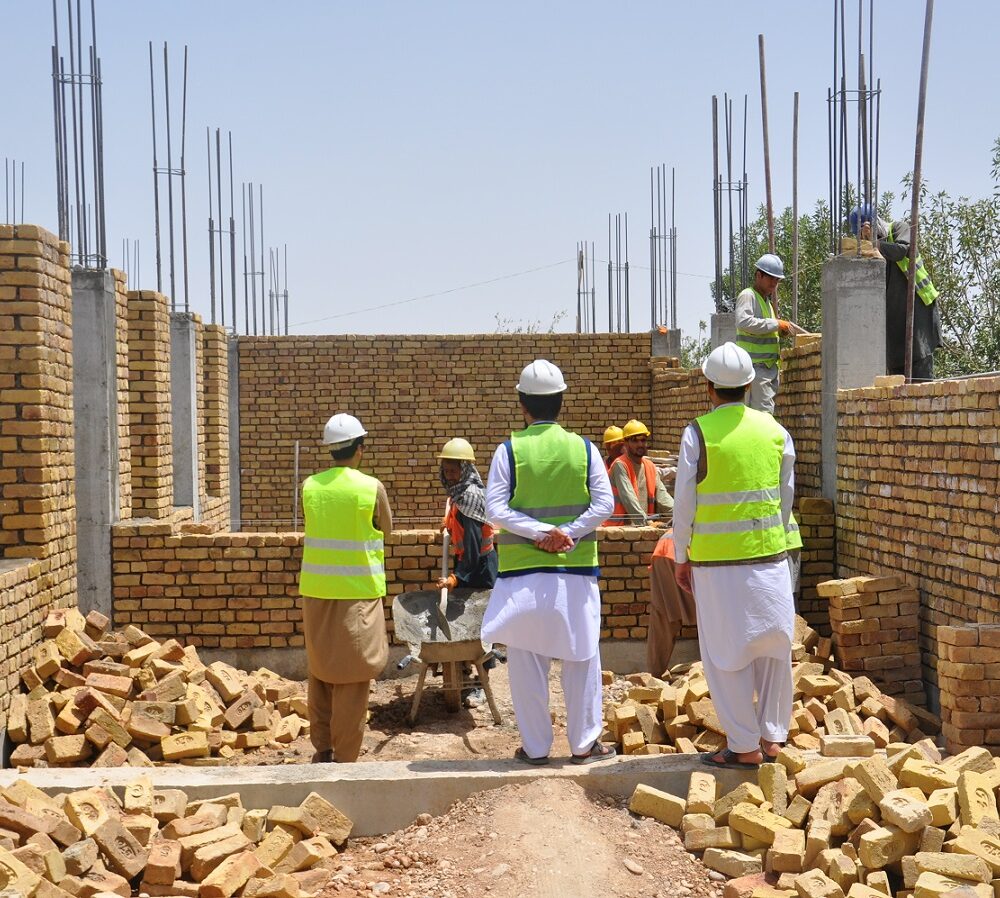
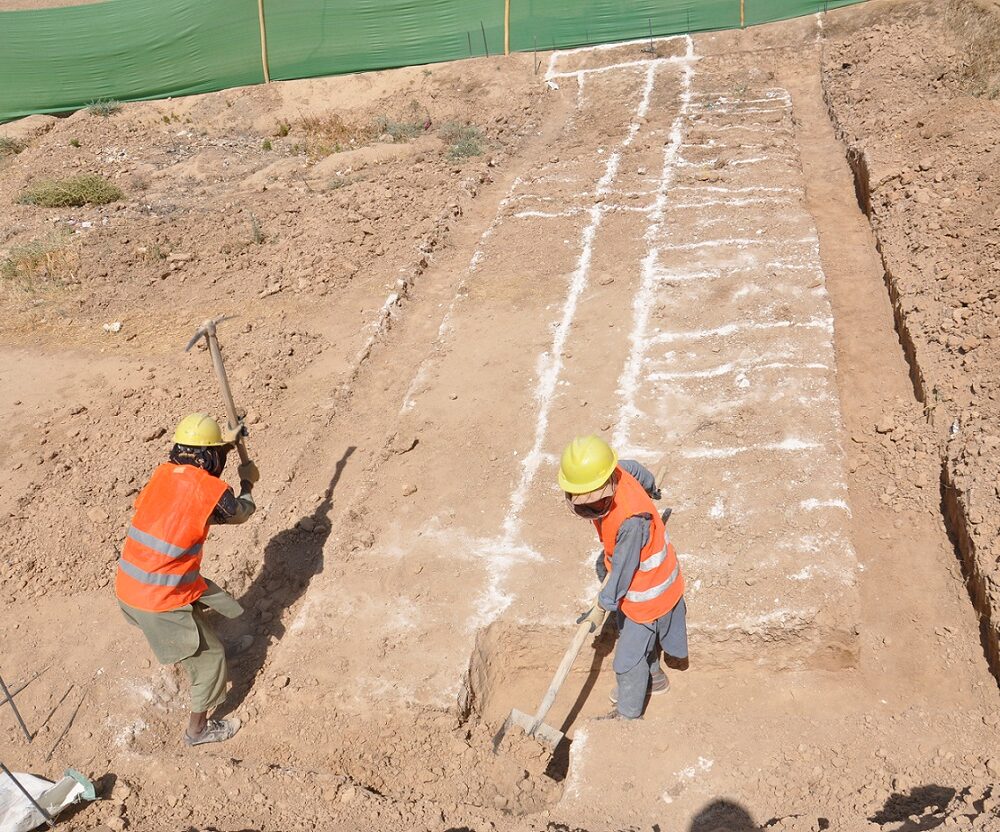
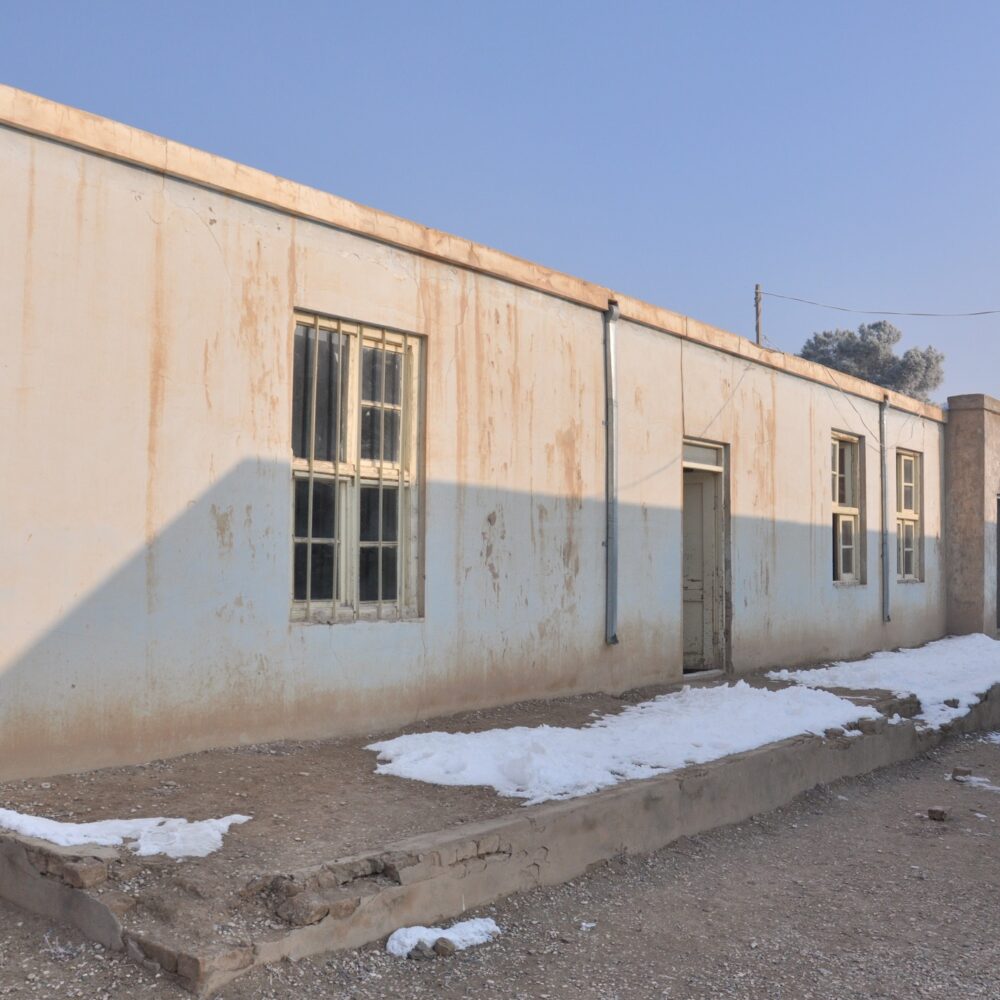
HYGIENE WORKSHOP FOR PUPILS
1,020 pupils from 1st to 6th grade took part in a WASH workshop where they learned what thorough hygiene practices look like - from personal hygiene, hand washing and brushing teeth to preventing the spread of viruses using the example of COVID-19.
ONGOING CONSTRUCTION WORK AND NEW TRAINING FACILITIES
The construction work has made progress. A six-day training course for janitors was held to enable repairs to be carried out at this and other schools. The construction projects in Afghanistan are temporarily taking a winter break while training courses and workshops continue.
PROGRESS IN CONSTRUCTION
The school building is already more than half complete, and the walls on the 2nd floor have been erected and the ceiling formwork completed.
CONSTRUCTION WORK ON THE SCHOOL BUILDING AT 30
The construction of the new school building is progressing rapidly and 30% is already complete. The walls on the first floor of the school building are set, the walls of the latrines are raised and roofed.
THE CONSTRUCTION WORK BEGINS
After 6 months, construction work started in June. Pits have been dug and the foundations for the new school building have been laid. Work on the latrines is progressing rapidly.
FINAL NEEDS ANALYSIS BEFORE PROJECT START
Our project partner OASE has known the school since 2019 and has been in regular contact with it since then to jointly develop the necessary measures and a timetable. The last on-site needs analysis took place in 2022.
Further educational projects
 Learn more
Learn more